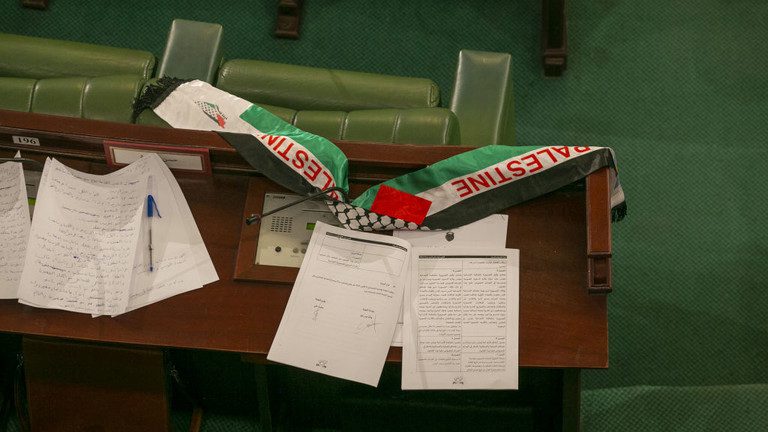Africa
Tunisia’s possible “high treason” relationship with Israel

As stated by its president, Tunisia’s obligation is to support the Palestinian people.
Citing solidarity for the Palestinian cause, the Tunisian parliament on Thursday started debating a bill that would classify as treasonous any move to normalise relations with Israel.
The plan classified “normalisation” as a felony under “high treason,” defining it as “recognition of the Zionist entity or the establishment of direct or indirect ties” with it.
It would be forbidden to engage in any kind of engagement with Israelis on “events, demonstrations, meetings, exhibitions and competitions” or in any other setting, including “political, economic, scientific, cultural, artistic or sporting,” on land that Israel either owns or occupies.
Athletes from Tunisia who aspire to compete in the 2024 Summer Olympics could face a 10-year ban from the International Olympic Committee or criminal punishment at home if the law is passed.
If found guilty of “normalisation,” a prison sentence of six to ten years and a fine of up to 100,000 dinars ($31,553) might be imposed; repeat offenders could face life in prison.
In his opening remarks, Parliament Speaker Brahim Bouderbala stated, “There is total agreement between the president, the parliament, and public opinion” over the matter. “We firmly feel that Palestine needs to be freed from the river to the sea… and that holy Jerusalem must serve as the capital of a Palestinian state when it is founded.
Last month, President Kais Saied warned that anyone who would normalise relations with Israel would be a “traitor” and that it was “Tunisia’s duty to stand by the Palestinian people.”
The actions of Tunisia coincide with the division of Gaza in two by Israeli forces conducting ground operations against Hamas, the Islamist organisation in charge of the October 7 attack that killed 1,400 Israelis. The Palestinian authorities in Gaza believed that 9,000 people had died as of Thursday.
Israel has never been recognised by Tunisia. The two nations swapped “interest offices” throughout the latter part of the 1990s, but in 2000, in the midst of the Second Intifada, a Palestinian uprising, Tunis broke off relations with Israel once more.
